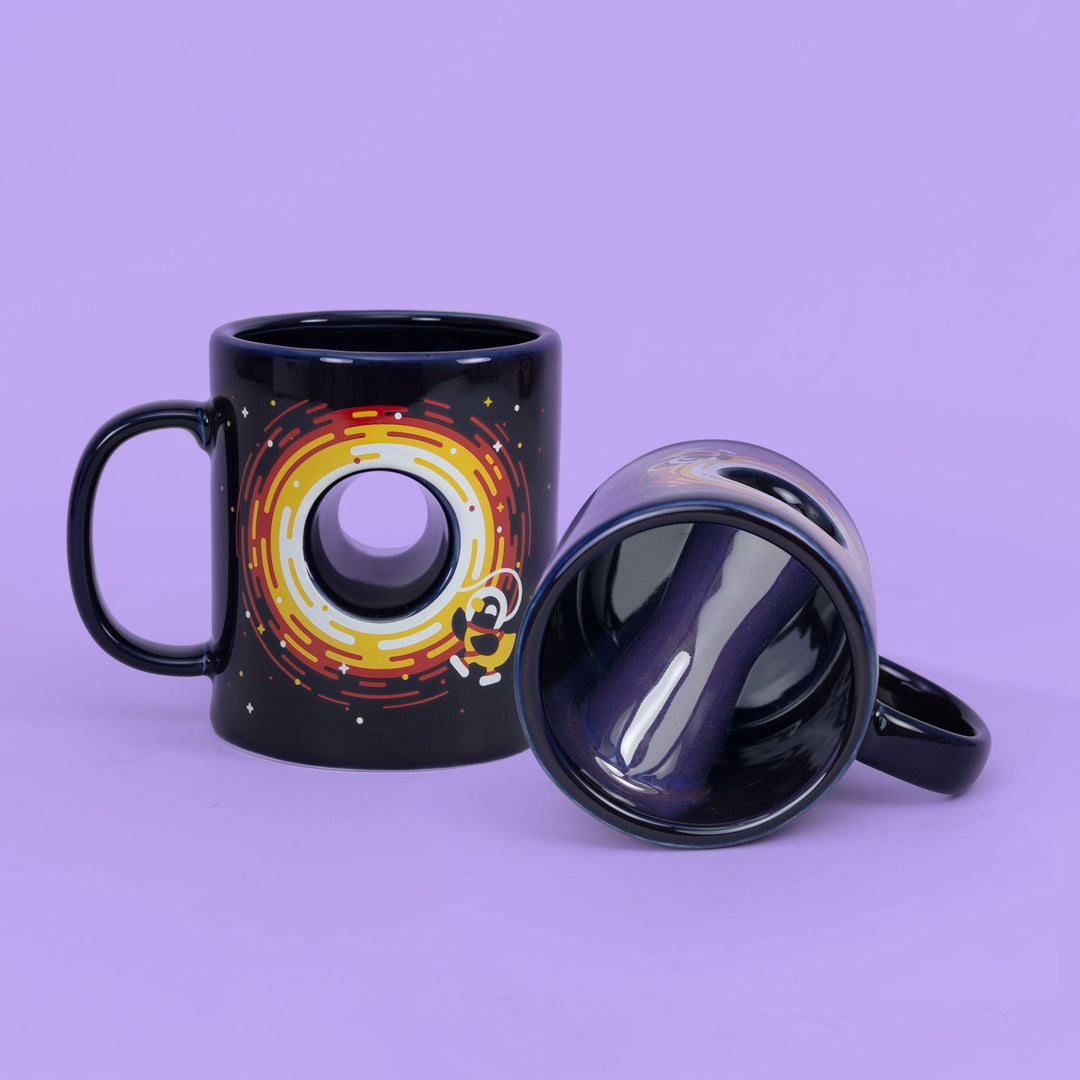It’s asking about the coffee not the coffee cup.
If your coffee has a hole in it that’s weird.
Ah but you see, coffee in this mug would have a hole in it:

I could fuck that coffee cup.
I believe you
Hmm, nice and warm
That’s one of those fun things until you have to clean it.
I had a very cool class in research epistemology and the exercise was basically to answer the question, do liquids have a shape and if yes, which is it? How would you prove it?
It was the source of the most deranged but valuable discussion I’ve ever had.
Isn’t part of the definition of liquid that it takes the form of its container?
I need another epistemological argument like I need another hole in my head.
One of them arguments was that in a vacuum, absent of any container or gravity, a liquid’s shape is that of a sphere.
Another one was that depending on the definition of liquid, liquids might or might not have a shape. This ranged from definitions of liquid based on atomic structure of molecules up to phenomenological definitions (asphalt and glass are liquids, according to some definitions e.g.). It also varies depending on the definition of the attribute shape itself.
The point of the exercise was to challenge the notion of objective truth in science.
Without gravity it’s a sphere, or in free fall without air drag it’s a sphere (if it has sufficient surface tension anyway, which is what makes lava or molasses flow that way, in combination with its viscosity).
But in a vacuum it will boil off until the vapor pressure is high enough to eliminate the vacuum. But then it’s not in a vacuum anymore.
Really a fluid or liquid will always try to minimize its surface area while fighting gravity.
It’s a definitions problem that a lot of people who think there aren’t “objective truths” in science.
Exactly, remember the point was not to be right. But to have the discussions. It wasn’t the physics we were interested in, but in the ways to construct knowledge. Definitions and models are human constructs. The universe doesn’t care that we do or do not have neat words and models of its workings. However, language and knowledge, as human endeavors, require human interaction.
An interesting one way to illustrate this point was: An hermit, all alone in the wilderness, by sole virtue of reasoning acquires absolute objective truth of the fundamental laws of the universe. Way beyond any current scientific knowledge. However, he doesn’t tell anyone. Has any knowledge been gained? If he dies, not telling anyone what he discovered, has any knowledge been lost?
If the “thread” width is around the size of an electron, then the coffee (liquid) has basically infinite hole.
The same applies to the cup, our hands and so on
I’m 50 and this is deep
Who the hell is asking coffee or a donut?
when someone at work is making a coffee run and can only afford one thing per person
Well, for one, that’s a coffee mug, not coffee. But I suppose coffee can also be in all of these shapes.
It’s the same shape, just reshaped
genius!
They better all weigh the same.
Shape has little to do with mass. Unless you want it to be so.
I’d eat a coffee mug shaped donut, but a waffle would hold up better. An elephant ear is fine as well, but a crepe is right out.
What about a beavers tail?
If the answer is yes, please come visit Canada and enjoy one with cinnamon and lemon (the best flavour) in Ottawa while skating on our gorgeous canal!
I always wondered what it would look like if you took Eastern European savory donuts and made them bigger and flatter. They look delicious!
Who’s out here deep frying crepes? American county/state fair vendors?
Well, they are now.
The Everything Everywhere All at Once sequel got weird.
This is exactly why my local Dunkin Donuts stopped serving topologists.
Topology is one of those sciences that is hyper-niche to the point that it seems like it would have very limited scope, but when you take a closer look it’s actually studying something fundamental.

Is “topologist” a job? Like someone who specializes in telling you how many holes and knots exist in a given object, How to “untie” seemingly knotted things that actually topographically have no knots? Do you clock in for that, or is it a 1099 freelancer thing?
Only if you are a very good ologist
Career progression is from midologist.
you can be a mathematics professor who specializes in topology, but that’s probably about as close as it gets from what i know
3D artists can specialize in topology where they make sure to clean up the models that other artists sculpt to optimize them for animation and performance. Depending on the use case you need different approaches to a models topology and it can get very complex actually. So yeah, it is people’s entire jobs to do this and they probably get paid more than us.
Okay, so eat the fucking coffee cup. I’ll wait.
Hmmmm, 7 donuts
HEY EVERYONE! This guys a nerd! Throw rocks at his face!







